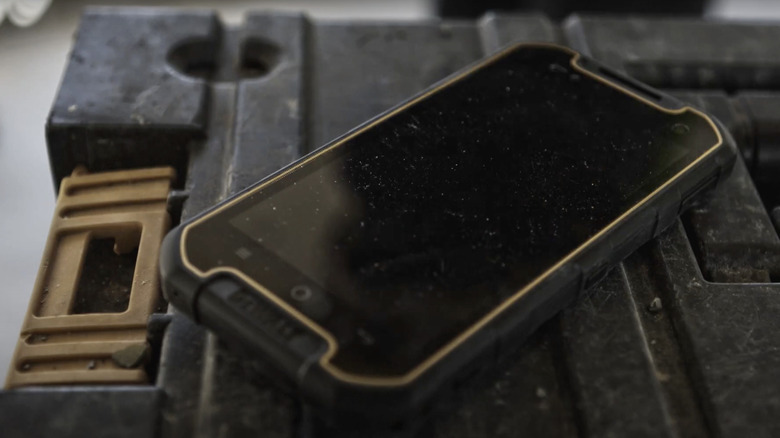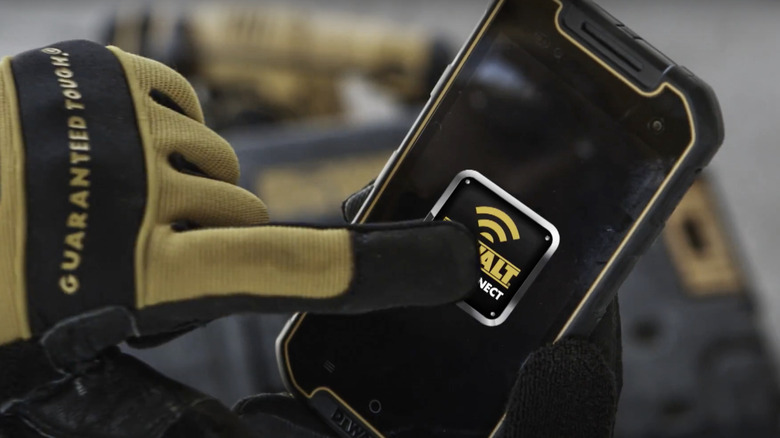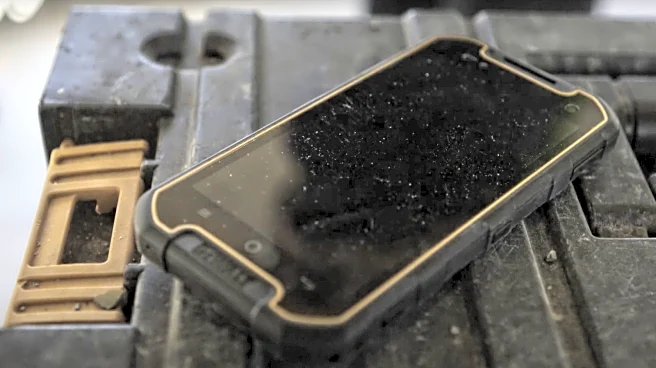
Life was simpler in 2016. Smartphones still had bezels, and manufacturers were still figuring out ways to develop designs and features that would make their releases attractive to the market. Interestingly,
that year, DeWalt surprised the tech world when it tried its hand at making smartphones. The tool brand seemingly did not intend to join the growing competition of major smartphone brands, but to challenge Caterpillar, which was the only player in the niche tough-phone market at the time.
The MD501 was made through DeWalt's collaboration with Global Mobile Communications, a specialist in rugged devices. Designed not to veer away from its branding as a power tool giant, DeWalt's rugged phone was made especially for the harsh conditions at construction sites. It met military-grade drop standards, offered dust and water resistance, and was built to survive extreme temperatures. Its launch did not fall short in terms of fanfare, as many news outlets took notice. However, despite its promising debut, the $544 device never gained traction, even in its niche target market. DeWalt didn't release sales figures to confirm this, but it can be assumed that the demand was so low that the company never bothered releasing a follow-up model. It also quietly exited the smartphone market after that.
Read more: 10 Must-Have Smart Home Devices For Your Outdoor Spaces
What The MD501 Had To Offer

The thing about DeWalt's MD501 was that it wasn't just a standard Android phone wrapped in a reinforced shell. The tool giant built it from the ground up to survive tough situations and environments. It came equipped with an IP68 dust and water rating, back when the rating was limited only to flagship smartphones from major brands. It also had the MIL-STD 810G certification, which meant it could withstand up to two-meter drops onto concrete without any problem. Its Gorilla Glass touchscreen was also built to be used while wearing gloves.
DeWalt's rugged phone housed a 3,950 mAh battery capable of 450 hours of standby time and up to eight hours of talk time. It also supported Qi wireless charging, even though the feature was rare at the time, even for high-end smartphones. It's also worth noting that its Dual SIM slots supported 4G connectivity. Plus, it had NFC and Bluetooth 4.0. DeWalt's Tool Connect app for managing Bluetooth-enabled tools and batteries also came preinstalled on the phone. Despite all these, the device, which ran on Android 5.1 Lollipop out of the box, failed to resonate with its target audience. It's either that or the market for rugged phones wasn't as big back then. Today, the global smartphone market has enough space for super durable smartphones that promise to be nearly indestructible. Meanwhile, the MD501 is only a relic that belongs to DeWalt's growing list of discontinued products.
Want the latest in tech and auto trends? Subscribe to our free newsletter for the latest headlines, expert guides, and how-to tips, one email at a time.
Read the original article on SlashGear.










